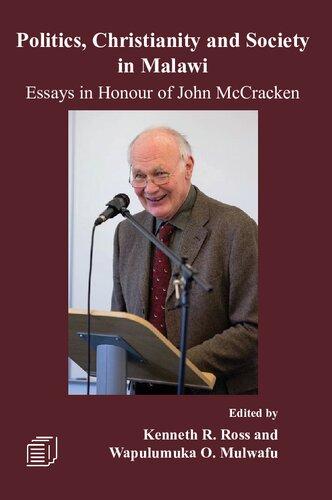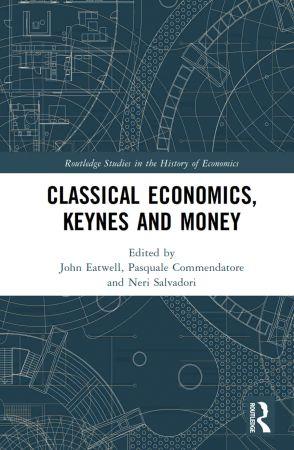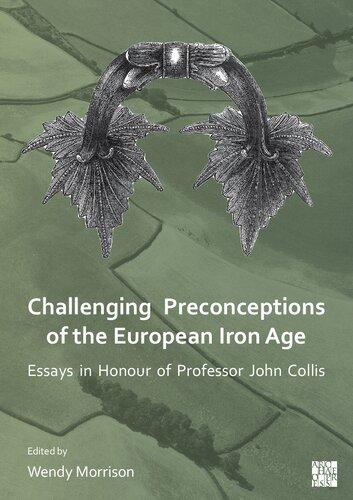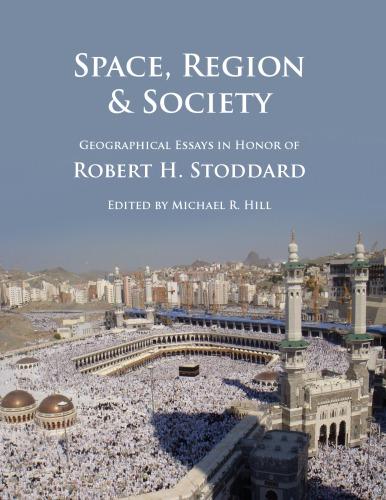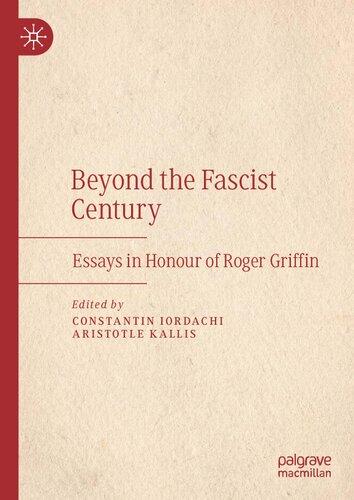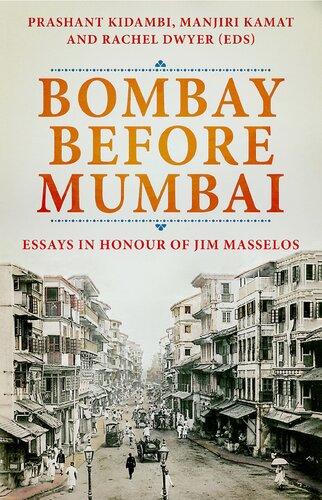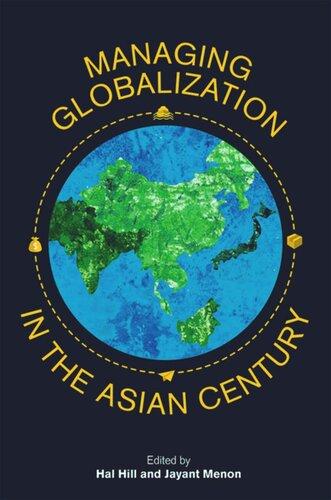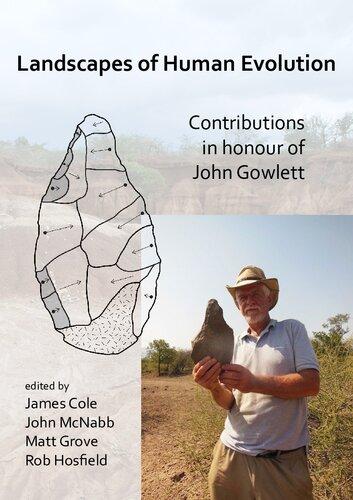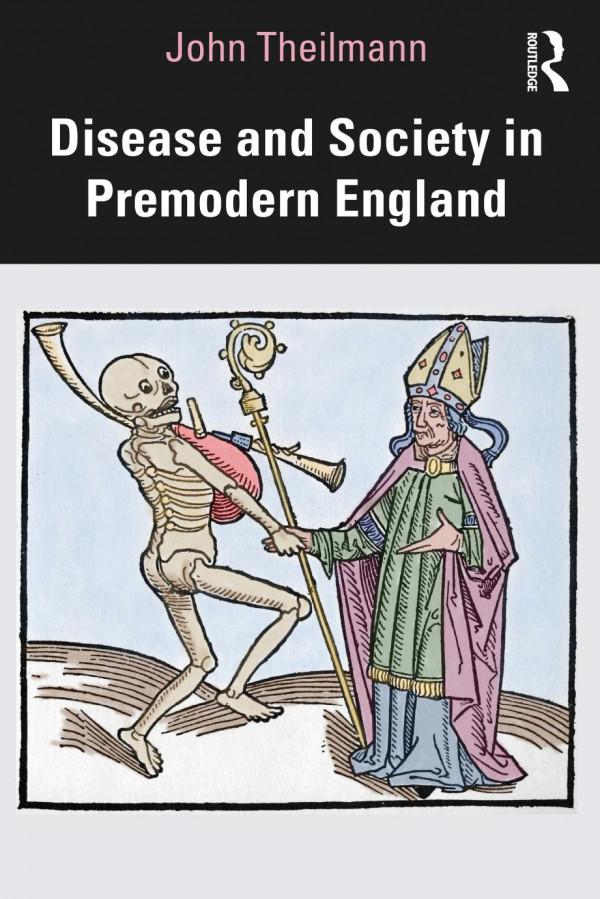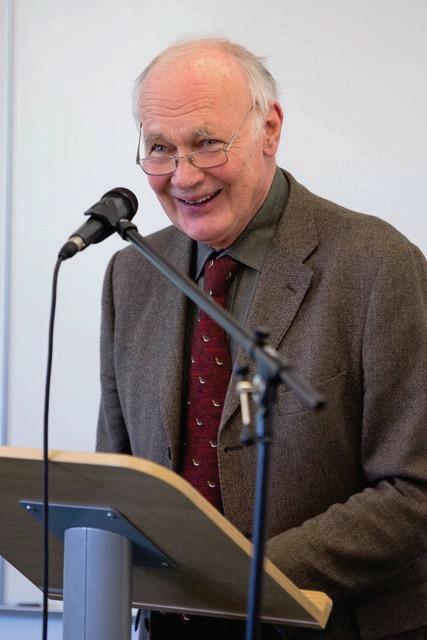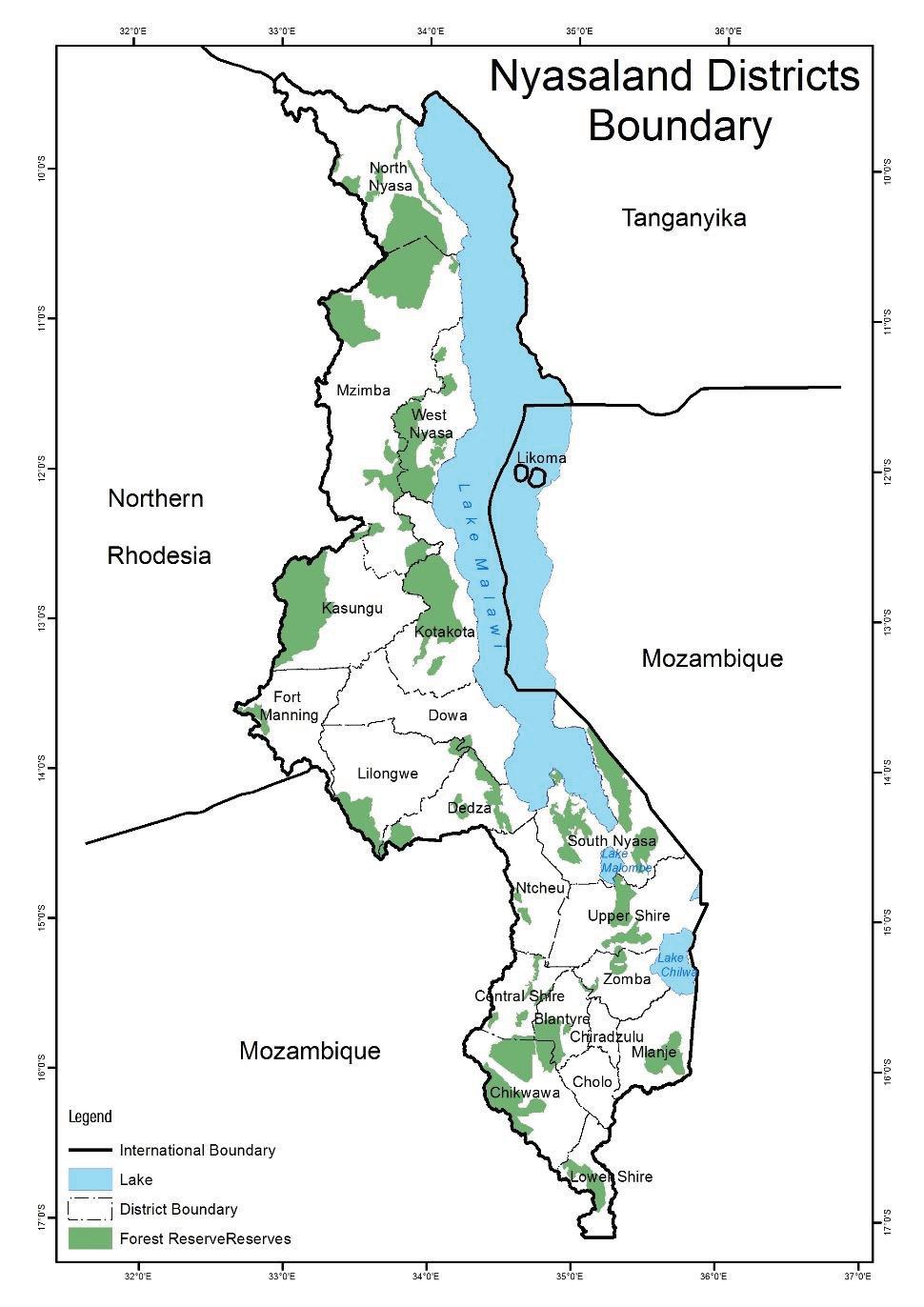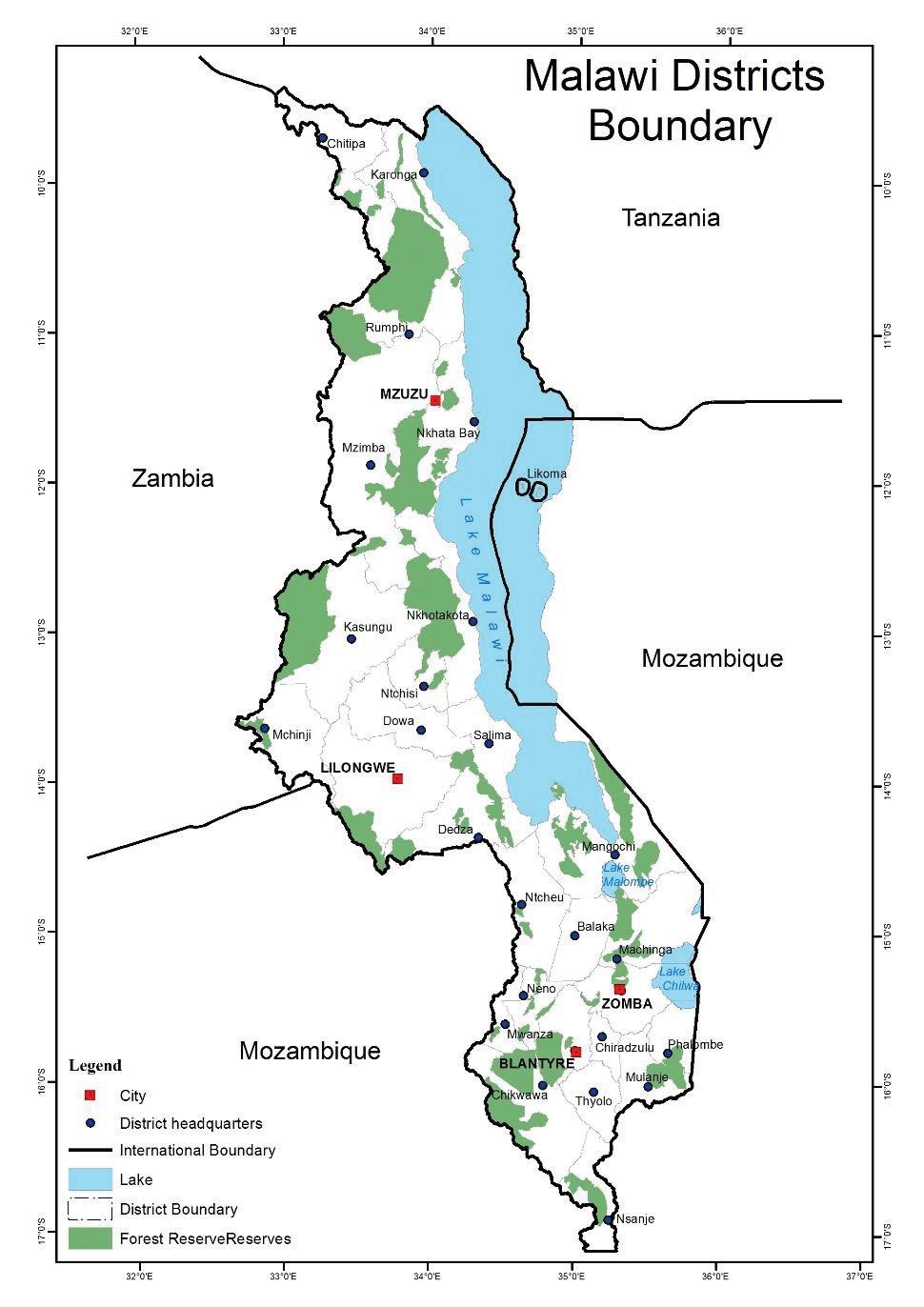Politics, Christianity and Society in Malawi
Essays in Honour of John McCracken
Editors
Kenneth R. Ross and Wapulumuka O. Mulwafu
Senior Consulting Editors
Kings M. Phiri and Klaus Fiedler Mzuni Books no. 40
Markku Hokkanen
Bryson Nkhoma
"Africa Is an Education": Vernacular Language and the Missionary Encounter in Nineteenth-Century Malawi
Harri Englund 138
Mothercraft in the DRCM: Mthenga Newspaper, Missionary Wives and African Women
Hendrina Kachapila 163
"They were kept outside but their interest was inside": Examining the Role of African Women in the Construction of Social Identities in Colonial Malawi. 191
Dorothy Tembo
The Contested Legacy of Malawi’s Decolonization Process, 1944-1994 215
Paul Chiudza Banda and Gift Wasambo Kayira
Christianity and Nationalism in Karonga Hills: The Tale of Two Brothers During the Late Colonial Period 1954-1960 243
Augustine Chingwala Musopole
Limits to State Power in Post-independence Development in Malawi, 1964-1983 266
Gift Wasambo Kayira
Pastors, Priests, Prophets: Poverty and Christian Religion in Malawi 1861 to 2018 293
John Chipembere Lwanda
The Influence of Christian Religious Authority in Education: A Trajectory of Religious Education in Malawi Schools from 1875 to 2018 320
Macloud Frank Salanjira
African Agency in Malawian Neocharismatic Churches 345
Felix Nyika
Dividing the Nation or Promoting Unity? Ethnic Based Associations and Production of Heritage in Malawi 372
Mwayi Lusaka
John McCracken’s Contribution to Malawi’s Urban History 396
Ruth Mandala
Ecological Change and Food Security: State Interventions into Peasant Agriculture in Colonial Malawi, 1891-1960 419
Bryson Nkhoma
Andrew Ross, John McCracken and Jack Thompson: Three Malawi Historians and their Influence on Scotland-Malawi Relations Today
R. Ross
Acknowledgements
A volume like this one depends on an extensive network of collaboration and we recognize our indebtedness to many who have played a part in its development. First of all, we wish to acknowledge the constant encouragement of Juliet McCracken during the conception and preparation of the book. We also appreciate the work of Dr Gerhard Anders and his colleagues who organized the conference held at the University of Edinburgh on 26 April 2018 on "Politics, Society and Christianity in Malawi and Beyond: A Memorial Conference for John McCracken and Jack Thompson." Several of the chapters in the present volume had their first airing at that conference.
We are thankful also to all who responded to the call for papers that we issued with this volume in view. The extent of the response to this call bears witness to the debt that many scholars feel that they owe to the work of John McCracken. Even those that could not be included helped to sharpen our thinking. The authors who journeyed with us have been unfailingly understanding and supportive as we imposed often short deadlines during the various stages of revision entailed in the editorial process. As we have exercised editorial responsibility, we have been grateful to be able to turn to our senior consulting editors, Prof Kings M. Phiri and Prof Klaus Fiedler, who always offered sound advice.
The latter has also been an exceptionally sympathetic publisher through his role at Mzuni Press. Given John McCracken’s consistent concern that his work be available to Malawian readers, we believe that Mzuni Press is an ideal publisher for this book since it publishes in Malawi while also having an international outlet through the London-based African Books Collective. Though a relatively young publisher, Mzuni Press has built up an impressive list of titles to which we are delighted that this volume can be added. It has been a pleasure to work with the Mzuni Press team, particularly Hope Kaombe, who did much of the work on layout and formatting, and
Daniel Neumann who undertook the cover design. We are also truly grateful for the award of a grant to support the publication from The Drummond Trust, 3 Pitt Terrace, Stirling, Scotland, UK.
Kenneth R. Ross
Wapulumuka O. Mulwafu
Zomba, December 2019
Notes on Contributors
Paul Chiudza Banda received his PhD in History from West Virginia University, USA. He has previously published book chapters and journal articles. Some of these can be found in The Journal of Public Administration and Development Alternatives; The Journal of the Middle East and Africa; African Studies Quarterly; and The Society of Malawi Journal. He is also a columnist for The Diplomatist Magazine.
Harri Englund is Professor of Social Anthropology at the University of Cambridge, UK. His books include From War to Peace on the Mozambique-Malawi Borderland; Prisoners of Freedom; Human Rights and African Airwaves; Gogo Breeze. In 2000, he invited John McCracken and Kings M. Phiri to join him as the organizers of a major conference at Chancellor College, Zomba, sponsored by the Nordic Africa Institute. One result of the conference was Englund’s edited volume A Democracy of Chameleons: Politics and Culture in the New Malawi .
Klaus Fiedler, born in 1942 in Germany, read Theology at the Baptist Seminary in Hamburg. He received his formative education at Makerere University in Uganda, and did his PhD with Dar-es-Salaam University. He worked for 8 years in South Tanzania as a missionary, and after 16 years in Germany he returned to Africa with a DTh from Heidelberg University, taught 15 years at Chancellor College of the University of Malawi and 12 years at Mzuzu University in Northern Malawi. His main interests are postgraduate studies and publishing.
Markku Hokkanen is a Senior Lecturer at the Department of History, University of Oulu, where he teaches colonial history, African history, health history and methodology. Hokkanen’s research has focused on Malawi, Southern Africa and the British
empire. His PhD thesis was examined by John McCracken in 2006. Hokkanen’s publications include the monograph Medicine, Mobility and the Empire: Nyasaland Networks, 1859-1960 (2017) and a co-edited collection Healers and Empires in Global History (2019). He is currently leading a collaborative research project on healers, politics and development in sub-Saharan Africa.
Hendrina Adielle Kachapila is Senior Lecturer in History at the University of Malawi. Her research focuses on women, central Malawi, identity and indigenous institutions. She earned her MA and PhD in African History from Dalhousie University. She has published her work in reputable journals such as The International Journal of African Historical Studies and Journal of Religion in Africa.
Gift Wasambo Kayira is a PhD candidate in the history department of the West Virginia University, USA. His dissertation project examines British colonial development ideas and practices and their legacy for post-colonial Malawi. He has recently published in the Journal of Public Administration and Development Alternatives, and the African Studies Quarterly.
John Lonsdale was a Cambridge graduate student with John McCracken from 1961 to 1964 and a fellow lecturer with him at the University College Dar-es-Salaam from 1964 to 1966. Subsequently he was Lecturer, Reader, and Professor of Modern African History at the University of Cambridge, and Fellow of Trinity College, 19682004. He co-authored, with Bruce Berman, the 2-volume work Unhappy Valley: Conflict in Kenya and Africa (Ohio University Press, 1992).
Mwayi Lusaka is a PhD candidate in the Department of History at the University of the Western Cape in South Africa, where he also tutors history. In Malawi he works as a Principal Researcher in the Cultural History section of the Department of Museums and Monuments. His research interests include public history and heritage, cultural heritage tourism, critical theory, political philosophy, postcolonial studies, cultural theory, migration studies and memory studies.
John Chipembere Lwanda, MB, FRCP (Ed & Glas), PhD, is a medical practitioner with NHS Lanarkshire, Scotland and an Honorary Senior Research Fellow in the Institute of Health and Wellbeing, College of Social Sciences, Glasgow University. Educated in Zimbabwe, Malawi and Scotland, his research interests include medical, social, political and cultural history. His publications include Kamuzu Banda of Malawi (Kachere, 2009), Politics, Culture and Medicine (Kachere) and Malawi: The State we are in? (Montfort Media, 2019).
Ruth Mandala is a PhD. student in the history department at the University of Illinois (Urbana-Champaign), and a member of staff in the history department at Chancellor College, University of Malawi. She holds a Master's Degree in African Social History and researches on Malawi’s urban histories and the intersection of global and local cultures. She has presented conference papers on "Urban Youth and the Glocalization of Hip Hop Music in Malawi 1988-2018," and "Contesting Space and Identity: Urban Youth Dress in Blantyre, Malawi, 1964-1994."
Wapulumuka Mulwafu is Professor of Environmental History and Dean of Postgraduate Studies at Chancellor College, University of Malawi. He is author of Conservation Song: A History of Peasant-State Relations and the Environment in Malawi, 1860-2000 (Cambridge: The
White Horse Press, 2011) and co -edited with John McCracken and Kings Phiri, Malawi in Crisis: The 1959/60 Nyasaland State of Emergency and its Legacy (Zomba: Kachere Series, 2012).
Augustine Chingwala Musopole is Associate Professor, Emeritus, Department of Philosophy and Religion, Chang Jung Christian University, Tainan, Taiwan. He majored in history in his Bachelor of Social Science degree at the University of Malawi, before embarking on his theological studies with the University of London. He holds a PhD in Systematic Theology from Union Theological Seminary, New York, USA.
Bryson G. Nkhoma is an Associate Professor in the Department of History and Heritage Studies at Mzuzu University, Malawi. He holds a PhD in African Studies (History) from the University of the Free State, South Africa. His research interest is in environmental history, food security, irrigation, public memory, migration and diplomatic relations. He has published in Physics and Chemistry of the Earth, Malawi Journal of Social Sciences, Development Southern Africa, and Southern African Peace and Security Studies.
Felix Chimera Nyika is a Lecturer in the Department of Theology and Religious Studies at Mzuzu University, and Lead Pastor of Kairos Christian Center and Principal of Kairos Leadership Institute & Theological Seminary in Lilongwe. He is a graduate of African Bible College Malawi (B.A. Biblical Studies), Trinity Evangelical Divinity School in Deerfield, Illinois (Master of Divinity), and Mzuzu University (PhD).
Kings M. Phiri is currently Adjunct Professor of History at Mzuzu University. He was previously Professor of African and Black History
in the University of Malawi. He is co-author of Twenty-five Years of Independence in Malawi (Blantyre: Dzuka Publishing Company, 1989); Co-editor of Democratization in Malawi: A Stocktaking (Blantyre: CLAIM, 1998); and Malawi in Crisis: The 1959/60 Nyasaland State of Emergency and its Legacy ( Montfort Media, 2012); and author of various articles on the history of Malawi, Africa and the Black Diaspora, which have featured in local and international journals and publications
Kenneth R. Ross is Professor of Theology at Zomba Theological College and Associate Minister of Bemvu Parish, Church of Central Africa Presbyterian, Synod of Blantyre. He has earlier served as Professor of Theology at Chancellor College, University of Malawi, General Secretary of the Church of Scotland Board of World Mission and Chair of the Scotland Malawi Partnership. His most recent book is Mission as God’s Spiral of Renewal (Mzuni Press, 2019). He is Series Editor of the Edinburgh Companions to Global Christianity (Edinburgh University Press).
Macloud Frank Salanjira is a Senior Lecturer and currently serves as Dean of the School of Education at Chancellor College, University of Malawi. He has a doctorate in education specializing in social studies education. His special interest is politics of education in general and of the curriculum in particular. He has lectured in curriculum and teaching studies in religious education for many years. His other areas of interest include history-education, education-research, social justice, education management and leadership, effective teaching, learning and assessment.
Dorothy Tembo is a Lecturer in the Theology and Religious Studies Department at Chancellor College, University of Malawi. She holds a PhD from SOAS, University of London, Religions and Philosophies
Department. Her Ph.D. thesis, titled "Humanizing Africans: Assessing the impact of the Livingstonia Mission and the Dutch Reformed Church Missions on the construction of Tumbuka and Chewa ethnicities and ethnic identities in colonial Malawi, 1875–1935." is located within the combined fields of History and Religions.
Megan Vaughan is Professor of African History and Health at University College London and was formerly Smuts Professor of Commonwealth History at the University of Cambridge. She began her career as a Lecturer in the History Department of Chancellor College. She researches and writes on the history of central/east Africa and is currently heading a project on epidemiological change in Africa, funded by the Wellcome Trust. She is author of The Story of an African Famine: Gender and Fa mine in Twentieth Century Malawi (Cambridge University Press, 1987).
Introduction: John McCracken and Malawi’s History
Kenneth R. Ross and Wapulumuka O. Mulwafu
This book has been written to celebrate the contributions of John McCracken, one of Africa’s foremost historians. Some of the papers appearing in this volume were initially presented at a memorial conference in Edinburgh in April 2018 but the majority were received from interested scholars after circulating an announcement of the book project. Each of the authors has taken up a particular strand of McCracken’s scholarly work and sought to offer an original contribution. Some engage closely with McCracken’s writing while others venture to break fresh ground on territory suggested by his scholarship. What gives coherence to the book is that it is all engaged with the nexus of issues that John McCracken identified as holding the key to understanding Malawi’s history.
Although McCracken began his research in Malawi around the time of independence in 1964, it was not until the early 1980s that he firmly established his authority as a distinguished Malawianist scholar. The book argues that after the first group of founding Africanist scholars had left in the late 1970s, McCracken continued to work on Malawi and became the leading authority in setting the agenda for research and writing of history in Malawi. He symbolizes the transition from the nationalist approach to one that explored the social history of Africa. Many scholars would eventually benefit from interaction with him personally or through his various published works.
This volume complements McCracken’s seminal publication of A History of Malawi. It can be read as an attempt to expand on some of the themes covered in his magnum opus. It is a book that will offer fresh insights to those interested in the history of Malawi in particular and Africa in general. Researchers and students will benefit not only from fresh perspectives on Malawi but also the opportunity to be
exposed to new directions in scholarship. It would not be an exaggeration to state that, unlike other countries in the southern African region, Malawi lacks an active tradition of publishing historical studies which synthesize knowledge. The works that exist are few and come out irregularly, hence the publication is timely.
Before going further, it is fitting that this book should begin with a sketch of the life and career of Kenneth John McCracken. He was born on 1 July 1938 in Edinburgh and brought up in the Scottish Borders town of Kelso where his parents, Kenneth and Marjory, were both medical doctors.1 His happy childhood was shared with his brother Peter. He was educated at St Mary’s School, Melrose and at Sedbergh, where he played rugby for the first XV. He did National Service in the British army between 1957 and 1959, becoming a second lieutenant with the King’s Own Scottish Borderers.
He considered himself a slow starter academically but his imagination was caught by history during his final year at school and he never looked back. 1959 saw him going up to St John’s College Cambridge where he took his degree in history and was recruited as a research assistant by Harry Hinsley, the noted historian of international relations. In his final year he fell under the spell of Ronald Robinson and Jack Gallagher who were pioneering a new approach to imperial history that took seriously the experience of the colonized as well as of the colonizer.
So keen was McCracken to pursue this line of inquiry that at graduation he abandoned his original plan to become a schoolteacher and enrolled as a research student at Cambridge under Robinson’s supervision. In September 1962 he learned from Professor George Shepperson of Edinburgh University that the extensive papers of the
1 Towards the end of his life John McCracken asked Kenneth Ross to speak at his funeral service. Historian to the last, he supported the request with a set of autobiographical notes that provided an account of his life. These notes have informed the preparation of this part of the introduction. However, any errors or shortcomings are the sole responsibility of the authors.
Church of Scotland’s Foreign Missions Committee had recently been deposited in the National Library of Scotland. This led him to take what, academically, he considered to be the most important decision of his life: to make a study of the Blantyre and Livingstonia missions in Malawi.
Following a year of intensive archival research he was delighted to take up the offer of a teaching post at the fledgling University College of Rhodesia and Nyasaland, today the University of Zimbabwe. This appointment not only allowed John to cut his teeth in University teaching but plunged him into African political realities. The forces of African nationalism were rising in Rhodesia and being met by the implacable resistance of the white settler Government of Ian Smithsoon to declare UDI. It was not a situation that easily allowed for neutrality and McCracken soon knew which side he was on.
A little-known fact about John McCracken is that he was arrested in Rhodesia in 1964, after taking part in a peaceful protest against the closure of the only newspaper sympathetic to African nationalism. He was detained for only a few hours but his colours were nailed to the mast and, though in his historical work he would always strive for objectivity and impartiality, his close understanding of the African nationalist cause opened up perspectives that had hitherto been closed to European imperial historians.
The same year McCracken made a research visit to Malawi, picking his moment nicely so that he could join the crowd in the stadium on the day Malawi became an independent nation. Who would have guessed that the young newly-arrived Scotsman looking on so intently would later become the most authoritative interpreter of the seventy years of British rule in Malawi? Meanwhile he based himself at the CCAP cottage high on Zomba Mountain, travelling down each day to work in the brick-built building on the main Zomba-Blantyre road that served at that time as the Malawi National Archives. On returning to Cambridge he began to write up his thesis and struck up a friendship with Jane Purkis, whom he had known since they were
fellow undergraduates. Romance blossomed and they were married in September 1965, setting off immediately for honeymoon in Rome and onwards to Dar-es-Salaam where they both had jobs at the newly founded University.
At the History Department of the University of Dar-es-Salaam, McCracken joined a group of brilliant young colleagues, led by Terry Ranger, who were pioneering a pro-African understanding of African colonial history, then considered highly radical. At that time the members of the History Department, including John Lonsdale and John Iliffe as well as Ranger, used to attend one another’s lectures. It was only in retrospect that John realized they were the best series of lectures he would ever hear. In this period, he was proud to maintain, the cutting edge in the study of African history was to be found not at any of the prestigious Universities of the UK or USA but at the brand new University of Dar-es-Salaam.
The exhilaration that the McCrackens experienced through the intense intellectual life of the University of Dar-es-Salaam was sadly overtaken by tragedy in July 1966. They made a visit to Malawi to allow John to complete some final research for his dissertation. The visit went very well and included the opportunity for John to give one of the very first seminar presentations at the newly opened University of Malawi at Blantyre. On the final day of their return journey, however, they were involved in a head-on collision with a huge lorry carrying oil from Dar to Lusaka. John survived with extensive bruising but Jane was badly injured and died in hospital in Iringa the following day. Following the funeral John returned briefly to the UK to visit family members. He then continued with his work at Dar-esSalaam for a further two years, still finding it a highly stimulating intellectual environment but with his personal life inevitably much affected by the tragic loss of Jane.
When John returned to Scotland in 1968 it was to another newlyfounded University – Stirling, which would be his academic base for the rest of his life. In his early years he was in his element as the
History Department pioneered the study of the history of the nonWestern world at a time when this was almost unheard of. An exceptionally able mature student named Monica Clough was a member of some of John’s first classes. When he was introduced to her daughter Juliet they instantly fell in love and were married at Dunblane Cathedral in January 1972. It was obvious to anyone who met them that they were just as much in love 45 years later.
Meanwhile Malawi was never far from John’s thoughts and when the opportunity came in 1980 to become Professor of History at the University of Malawi’s Chancellor College, he jumped at the chance. By this time John and Juliet had a young family, Matthew born in 1973 and Caroline in 1978. The next three years were fulfilling and formative, in both professional and family life. John was impressed by the 100% attendance at his 8.00 am lectures and relished the Department’s weekly research seminars. With such stimulating colleagues as Kings Phiri, Owen Kalinga and Megan Vaughan, scholarly collaboration deepened into profound personal friendship that would continue to be productive and inspirational for many years to come. The dark side of the experience was the oppressive political environment prevailing in Malawi at that time. McCracken advocated the cause of three students who had been taken into detention, which led to a rift between him and senior officials of the University. Nonetheless, he looked back on the Zomba years as among the most satisfying of his career.
It is noticeable that Europeans who become deeply involved and deeply identified with Africa can find it difficult to fit in completely with the establishment when they return to their home country. There may have been an element of this in the case of McCracken. Certainly, his happiest and most fulfilled times were when he was working in Africa and he was not always completely enchanted with the direction of academic life in the UK. It may also be that his scholarly quality was most fully appreciated by his African colleagues.
Be that as it may, the University of Stirling formed a congenial academic base and the McCracken family settled very happily in the nearby village of Doune where they played an active role in community life over many years. It was to Doune and Stirling that they returned in 1983 after their very fulfilling three years in Zomba. Now McCracken found himself at the height of the Thatcher era with cutbacks to University funding the order of the day and morale at an alltime low. Even in straightened circumstances, however, John played a leading role in the establishment of the Centre of Commonwealth Studies of which he was the founding Director. He also served as Head of the Department of History during a period when the future of the Department was very much at stake. He went on to become Head of the School of Arts, giving him opportunities to use his gifts in mentoring and encouraging younger colleagues. He retired from the University of Stirling, after 33 years of service, in 2002, but continued his association as an Honorary Senior Research Fellow.
Meanwhile, soon after returning from Zomba, McCracken coorganized a conference hosted by Edinburgh University’s Centre for African Studies in May 1984. It took the theme, "Malawi: an Alternative Pattern of Development" and proved to be a landmark conference, demonstrating the extent to which scholarship in Malawi was beginning to break free from the controls imposed by the Banda regime in earlier decades.2 In subsequent years McCracken became a major player in the wider community of African studies, with scholarly collaboration finding expression in a network of conferences and journals. From 1990 to 1992 he served as President of the African Studies Association of the United Kingdom, from which he received the prestigious award of Distinguished Africanist in 2008.
Amidst all these demanding commitments, McCracken was writing. His early work Politics and Christianity in Malawi is a thoroughly
2 See John McCracken and Christopher Fyfe (eds), Malawi: An Alternative Pattern of Development, Edinburgh: Edinburgh University Centre of African Studies, 1984.
revised version of his doctoral thesis.3 Adrian Hastings described it as "a model, not easily surpassed, of mission history which is also genuinely social history drawing together a network of very varied themes."4 It remains in print more than forty years after its first publication - to John’s delight, in an affordable Malawian paperback edition.5 Klaus Fiedler, who was responsible for the publication of the new edition in the Kachere Series, remarked that: "It has become the basic scholarly book for Malawian Church History." He went further to say, "I was impressed by his thoughtful foreword for the reprint. I never came across such a good foreword for a reprint. I have recommended it often to my students."6 In this way John’s work continues to be highly influential among a new generation of Malawian students.
Even more so since the publication in 2012 of his magnum opusA History of Malawi 1859-1966, not only the outstanding study of Malawi’s colonial history but regarded as among the best single-country histories ever to be written about any African nation. 7 John brought to this book a knowledge of the relevant primary and secondary sources that is unrivalled in its range and depth. His qualities of numeracy are also evident as many of his points are driven home by reference to statistical data. At the same time, the reader is led along by a masterly story-teller with an eye for the details and anecdotes which add interest to the narrative. When recounting, for example, the special visit to Malawi made by Oliver Lyttelton as
3 John McCracken, Politics and Christianity in Malawi: The Impact of the Livingstonia Mission in the Northern Province, 1875-1940, Cambridge: Cambridge University Press, 1977.
4 Quoted in John McCracken’s autobiographical notes.
5 John McCracken, Politics and Christianity in Malawi, 1875-1940, 2nd edition with new introduction, Blantyre: Kachere, 2000; 3rd edition, Zomba: Kachere, 2008.
6 Personal communication, October 2017.
7 John McCracken, A History of Malawi, 1859-1966, Woodbridge: James Currey, 2012.
Colonial Secretary to address issues of land policy in 1954, he includes the information that Lyttelton fell over the bannisters at Government House in Zomba in the middle of the night, hitting the stairs twelve feet below and leaving him covered in bruises. It is not clear that this incident had any influence on the development of land policy but it undoubtedly makes for more interesting reading. Without any sacrifice of academic rigour the book turns out to be a real pageturner.
The volume can be read as an economic history since a primary focus throughout is the question of how the country was developing economically or, unfortunately, more frequently, not developing economically. In revealing Malawi’s inherent economic weakness and the failure of British colonial rule to address it effectively, McCracken relentlessly pursues the question of what the twists and turns of colonial economic policy meant for the average Malawian. In many ways this paints a bleak picture but it also reveals the resilience of Malawian communities for whom economic conditions have been continually unfavourable. He demonstrates a remarkable capacity to put himself in the shoes of ordinary Malawians and to explicate what social, political and economic changes meant for them. And it is all delivered in wonderfully crisp prose. Scholars, students and general readers will always be grateful to have such a magisterial, gripping and dependable account of this formative period in Malawi’s modern history.8
His final work, an edition of the papers of the Commission of Inquiry into the 1915 Chilembwe Rising, secures a primary source that will continue to be a priceless resource for scholars in many fields.9 Aided by McCracken’s introduction and extensive annotation,
8 See further Kenneth R. Ross, “Review of John McCracken, A History of Malawi 1859-1966, Woodbridge, Suffolk and Rochester NY: James Currey, 2012," Society of Malawi Journal, Vol. 66, No. 1, 2013, pp. 51-57.
9 John McCracken (ed), Voices from the Chilembwe Rising: Witness Testimonies made to the Nyasaland Rising Commission of Inquiry, 1915, British Academy Fontes Historiae Africanae Series, Oxford University Press, 2015.
they can engage first-hand with the witness testimonies which shed light on many different aspects of life in Malawi during the early part of the 20th century. Besides the major books there were many carefully crafted articles, including some that have proved to be seminal works, such as "‘Marginal Men’: the Colonial Experience in Malawi"10 or "Experts and Expertise in Colonial Malawi."11 There were also edited volumes such as Malawi in Crisis: The 1959/60 Nyasaland State of Emergency and its Legacy, the volume which resulted from a conference that John co-organized in Zomba in 2009 to mark the 50th anniversary of the 1959 State of Emergency.12
McCracken was a highly principled scholar – infinitely conscientious in his supervision of students, in external examining and in the refereeing and reviewing that he did for such periodicals as the Journal of Southern African Studies; meticulous to the point of perfectionist in the preparation of his own published work; not much interested in University politics from a careerist point of view but ready to fight tooth and nail when he believed that scholarly integrity was at stake; passionately committed to the academic development of younger colleagues, especially the Malawian historians with whom he worked across four decades. As Scotland’s relations with Malawi have revitalized since the turn of the century, McCracken stood out as an advocate of the need to be a "critical friend," ready to speak out when there is injustice to be confronted.
McCracken has been a mainstay of many an academic conference related to African history. Often, he would be delivering a formidable address but even when he was part of the audience, he would make his mark. As one of his Africanist colleagues put it: "He had the
10 John McCracken, “‘Marginal Men’: The Colonial Experience in Malawi," Journal of Southern African Studies , Vol. 15, No. 4, 1989, pp. 537-564.
11 John McCracken, “Experts and Expertise in Colonial Malawi," African Affairs, Vol. 81, No. 322, 1982, pp. 101-116.
12 Kings M. Phiri, John McCracken and Wapulumuka O. Mulwafu (eds), Malawi in Crisis: The 1959/60 Nyasaland State of Emergency and its Legacy, Zomba: Kachere, 2012.
capacity to put questions in a uniquely interesting way." He will be remembered as someone who combined wit, charm and deep humanity with sharp judgement and critical acumen. His literary legacy will secure his memory and we can be confident that his work will continue to be used and valued for generations to come. His human legacy will possibly be even more influential as his students and colleagues take forward the unique inspiration that he brought to historical study. It would not be an exaggeration to describe him as the father of modern Malawian history.
John continued to be fit and productive in his retirement. In fact, he published some of his best work when he was in his 70s. However, in the summer of 2017, as he entered his 80th year, John was diagnosed with terminal cancer, a situation he accepted with grace and courage. He died on 23 October 2017. He is survived by his wife Juliet, children Matthew and Caroline and grandchildren Amelia, Charlie, Alfie and Laurie.
He is survived too by a community of historians who mourn his passing and whose work continues to be informed by his scholarship. Representatives of this community took the opportunity to pay tribute to his contribution at the above-mentioned conference held at the University of Edinburgh on 26 April 2018. Titled "Politics, Society and Christianity in Malawi and Beyond: A Memorial Conference for John McCracken and Jack Thompson," it was co-hosted by the Centre of African Studies, University of Edinburgh, Centre for the Study of World Christianity, Uni versity of Edinburgh, Division of History and Politics, University of Stirling and the Scotland Malawi Partnership; and sponsored by the British Institute in Eastern Africa, Nairobi. It honoured the contribution of both John McCracken and his long-term colleague and collaborator Jack Thompson who died only a few months before him, in August 2017.
This book therefore represents a second scholarly initiative to recognize and honour the life and work of John McCracken, organized this time from an editorial base in Zomba, Malawi. As indicated
above, it has some overlap with the Edinburgh conference since the chapters by Vaughan, Phiri, Mulwafu, Englund, Lwanda, Hokkanen and Ross have been developed from presentations made at the 2018 conference. However, a larger part of the book comprises chapters by Malawi-based scholars who were not able to travel to the Edinburgh occasion. It therefore brings together international scholars who have made Malawi a primary focus of their research with the community of historical scholarship that has developed in Malawi’s own Universities. It was within these two closely integrated communities that John McCracken lived his life and developed his work. By gathering original writing from leading representatives of both communities, it is hoped that this volume will not only pay tribute to a much-loved colleague and mentor but also set a new benchmark for Malawi’s historical scholarship and lay foundations for future work.
With this goal in view, all chapters have gone through the normal process of peer review to check accuracy of empirical data and enhance academic rigour. In order to be available to the Malawian reading public while at the same time speaking to the wider international community, the book has been published in Malawi by Mzuni Press. This is in line with the values of McCracken who always prioritized the availability of his own works to the people and areas where the research was done. Internationally, the book will be available through the London-based Africa Books Collective.
The book has brought together contributions from various people who either knew McCracken or those who read and interacted with him over the many years of his work in Africa and the UK. The first section comprises reflections by John Lonsdale, Megan Vaughan and Kings Phiri, former colleagues who write about McCracken as Africanist, historian and Malawianist. This sets the context for understanding the man who would be appropriately considered the father of Malawian history.
The second strand sets McCracken’s work in the context of Malawi’s historiography as a whole. Mulwafu provides a historiographical overview of McCracken’s research interests which have influenced much of the scholarship in Malawi. Markku Hokkanen examines McCracken’s contribution to the historiography of medicine in Malawi, examining ways in which medical missionaries facilitated the achievement of the civilizing mission in Africa. Klaus Fiedler considers McCracken’s fundamental role in the development of Malawian church history and traces its development since the publication of Politics and Christianity in 1977.
The manifold influence of Christianity on the history of Malawi was a lifelong scholarly concern for McCracken and aspects of this theme feature prominently in the present volume. Hendrina Kachapila and Dorothy Tembo interrogate the role of missionaries in giving agency to African women in colonial Malawi through newspapers and women’s forums. Harri Englund examines the efforts of early Christian missionaries to come to terms with the vernacular environment around them. In particular, he focusses on David Clement Scott and his attempts during the early decades of Blantyre Mission to inculturate the Christian message in vernacular languages and cultures. John Lwanda and Felix Nyika draw attention to more recent developments as each offers a critical analysis of the Pentecostal churches in modern Malawi. Nyika’s focus is with the evolution of a new brand of Pentecostalism, which he describes as "Neocharismatic." Lwanda exposes the irony of the church’s failure to be consistent in its calling to be a service provider to the poor, particularly those in urban areas. Instead of responding to the needs of the poor, modern Pentecostalism emphasizes opulence and materialism as exemplified by the penchant for flashy dressing, cars and churches.
As in many other African countries, the history of education in Malawi cannot be complete without the examining the role of missionaries. Macloud Salanjira explores the debate on the provision of religious education in Malawian educational institutions. He shows
the manner in which the ideology for religious education has developed and the contest for space and influence in offering either Bible knowledge or religious education in Malawian schools. A related paper is by Augustine Musopole who looks at the contrasting life experiences of the two mission-educated Musopole brothers, particularly during the State of Emergency in 1959. While one joined the ministry as an ordained Presbyterian pastor the other went in a different direction and became an atheist and politician.
Issues arising from colonial rule, which very often have postcolonial repercussions, also feature prominently. Bryson Nkhoma picks up one of the central themes of McCracken’s scholarship, the peasantry. He examines the performance of peasant food producers under changing state policy frameworks in the early colonial period. The idea of questioning the role and capacity of the state in implementing policies has been discussed by several authors. The uneven implementation of colonial policy is further developed in another paper by Nkhoma in which he examines state intervention in restructuring peasant agriculture to meet the growing demands for food security. Similar efforts are reflected in the post-colonial period where, as Gift Kayira shows, the state pursued an oscillating policy regarding economic development.
Gift Kayira and Paul Chiudza Banda have revisited the old debate on decolonization but this time around with emphasis on the role of so-called marginalized groups. They argue that the legacy of the youth, women and workers has been under-represented in favour of elite interest groups. Mwayi Lusaka takes us back to one of the earlier themes of McCracken: the rise of nationalism through native associations. While McCracken focused on the colonial context, Lusaka deals with the rise of post-colonial ethnic identities and how they are being manipulated to advance political interests. Although McCracken’s focus was largely on Malawi, he was always attentive to historical developments elsewhere on the African continent. The rise of academic interest in urban history in the 1980s did not miss his attention so that he was able to write on the significance of the newly
